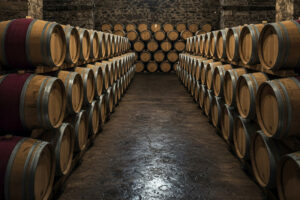Be it the untouchable "holy land" of Bordeaux, or a tiny market with tremendous room for growth potential like India, or centuries-old companies that have chosen single variety, success in the global wine world is not only a goal to reach, but also and above all a trophy to maintain and defend.
And in order to do that - despite the fact that every company in these cases is a world unto itself - there are a few guidelines that were discussed at the International Masters of Wine Symposium in Florence.
Christian Seely, Managing Director of AXA Millésimes, opened the discussion, focusing on the growing trend in average prices of Bordeaux crus to highlight how quality is one of the main factors, if not the most important, to maintain its position. The “generic” prices of Bordeaux have grown only 24% from 1982 to today; the 2ème Cru grew (despite very steep ups and downs) 340% and the Premiere Cru, 703%. The market’s message seems unequivocal; quality is rewarded over anything else, even volume.
According to Rowald Hepp, Seely’s colleague in the German firm Schloss Vollrads, to keep up success you must accept and make your niche market your strong point. ”You can live very well”, he said, “in a niche market, as long as you keep in mind its limitations and its potential range of action”; and fill up, so to speak, your niche - in this case, with Schloss’ at least eight centuries of history, devoted exclusively to Riesling.
The counterpoint to these two experiences, both comfortably quartered in the Old World, was Rajeev Samant, founder and CEO of Sula Vineyards who about 15 years ago ventured on the difficult road of viticulture in tropical climates, creating, literally from nothing, a wine culture in a country with a remarkable market potential.
“Although the current per capita consumption in India is 12 milliliters per head, and the infrastructure and bureaucratic and cultural difficulties certainly do not help”, he said, “the fact remains that in my opinion India is on the brink of a tremendous explosion of wine consumption, fueled by growth in the GDP that will soon start to soar and an urban middle class, especially among women, which is integrating wine into their lifestyle”.
Last but not least, Oscar Farinetti, the volcanic founder of Eataly, outlined his philosophy of maintaining the entrepreneurial success of wine, even and especially for Italy. “It is necessary”, he said, “to increase the average price of Italian wine in the world by 100% without increasing volumes to reach the level of our French “cousins”. And above all, we should be proud of our biodiversity, with over 800 indigenous grape varieties that we are not using yet, out of the 1200 we have. We need to become capable of narrating and communicating our wine and our territory (food, wine, tourism), through good storytelling. And finally, we need to make our wine even more "clean", free from herbicides and chemical fertilizers as well as prices that are too varied and an unbearable bureaucracy”. All of this through his project "Free Wine", of course.
Copyright © 2000/2026
Contatti: info@winenews.it
Seguici anche su Twitter: @WineNewsIt
Seguici anche su Facebook: @winenewsit
Questo articolo è tratto dall'archivio di WineNews - Tutti i diritti riservati - Copyright © 2000/2026






































































































































































































